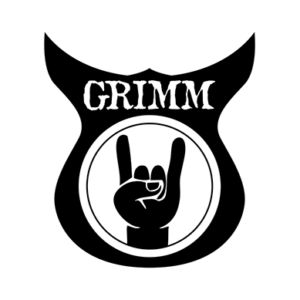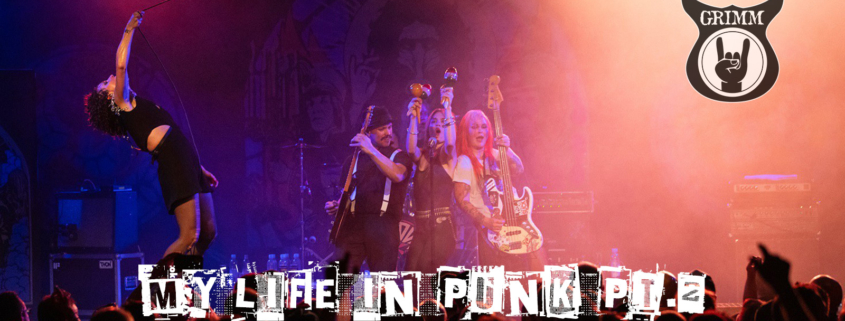My life in punk (2/2): Surviving the 80s and how things are now
Punk has been a part of my life for the majority of it, and for the occasion of “Punk For A Day”, I found it to be a good moment to reflect a bit on my experiences with it and how things evolved over the decades. For my story about how I got into the punk scene and grew up with it over the 70s, go check out the first part of me reminiscing here.
The early 1980s saw the rise of a particular brand of punk in the UK that was named Oi. A real working-class movement that brought together punks, skins, and anyone who fancied it. As well as addressing such topics as unemployment, the police, and government oppression, Oi concerned itself with football violence, sex, and alcohol (all good working-class topics!).
Many fans of Oi were skinheads, some of whom were of a far-right persuasion and Oi became tainted by accusations of racism, especially after a gig at the Hambrough Tavern in Southall on 4 July 1981 featuring The Business, The 4-Skins and The Last Resort, ended in a huge riot and the venue burned to the ground by local Asian youth.
Although Oi bands came out and condemned racism and fascism, the final blow to Oi was the compilation album Strength Through Oi! The title of which was uncomfortably close to the Nazi Strength Through Joy slogan. It didn’t help matters that the cover featured a skinhead who was in prison for racial violence.
Although Oi! May have been questionable, it was an inspiration to many American youths who went on to form bands. Both Rancid and the Dropkick Murphys have cited Oi as an influence.
Alongside Oi there was another brand of punk making a name for itself Anarcho punk. Typified by Crass, Anarcho punk concerned itself with animal rights, pacifism / anti-war, anti-corporate and workers’ rights and was all for direct action such as civil disobedience, animal liberation, non-violent resistance, ecotage and a dislike of Margaret Thatcher and her Conservative Government.
There were also many post punk bands, bands who had either been heavily influenced by punk or whose members had been involved in the early punk bands. These bands were quite diverse and include Joy Division, Gang Of Four, Throbbing Gristle, Siouxsie and The Banshee, Jesus & Mary Chain and Public Image Limited who were fronted by John Lydon nee Rotten. These bands were also a lot more interesting than 3rd wave punk bands playing punk by numbers.
At this time, America was producing some interesting developments in punk rock genres. The 80s saw the emergence of Hardcore punk, really fast aggressive, almost brutal music and politically charged lyrics.
1991 saw Nirvana have a worldwide hit with their album Nevermind and the phenomenon of Grunge was born. Nirvana, and in particular Kurt Kobain were not shy about citing their love of punk rock and how it influenced them.
Out of Gilman Street, Berkeley came Green Day, Operation Ivy and after their demise, Rancid. Epitaph records introduced the skate punk genre, featuring bands like Pennywise, Offspring and NOFX.
With the introduction of MTV came bands such as Blink 182, Good Charlotte and Sum 41 who were labelled pop punk. In truth, there has always been an undercurrent of pop in punk. The Ramones were not exactly shy of flaunting their pop influences, Teenage Kicks by the Undertones is the most sublime example of pop punk and surely Buzzcocks were the most perfect pop punk band ever?
Lookout! Records featured Screeching Weasel, The Queers and the criminally underrated Mr T Experience who were all influenced by The Ramones, Undertones and Buzzcocks as well as the Beach Boys and surf. All of these bands have made great records and I still love listening to their stuff today.
So, what is the current state of punk as it approaches its 50th anniversary? For the last two years I have attended the Rebellion Festival in Blackpool. The festival attracts fans from all over the world. Many it must be said are not in the first flush of youth, same goes for some of the bands, Charlie Harper of the UK Subs is 79 and retiring from touring this year.
Some bands really need to know when it is time to pack it in, especially when members die. The Buzzcocks are not the Buzzcocks without Pete Shelley and never will be.
I love the Dropkick Murphys, but these days they seem to have turned into some sort of corporate touring machine and play really huge arenas and charge £35 for a t shirt. I saw them in Amsterdam in a space that held 18,000 people, so removed from the small venues I used to see them in.
What has been good though is seeing young bands from all over the place coming to Blackpool and being part of this punk festival. I have seen bands from Mexico, Chile, Indonesia, North Korea, Japan and from all over the USA and Europe. This demonstrates to me that the spirit of punk is still alive and still relevant today. Inequality, sexism, homophobia, racism, abuse of power, police harassment all are still being challenged by modern day punk bands and while this continues people will listen and ensure that Punk Lives!












Leave a Reply
Want to join the discussion?Feel free to contribute!